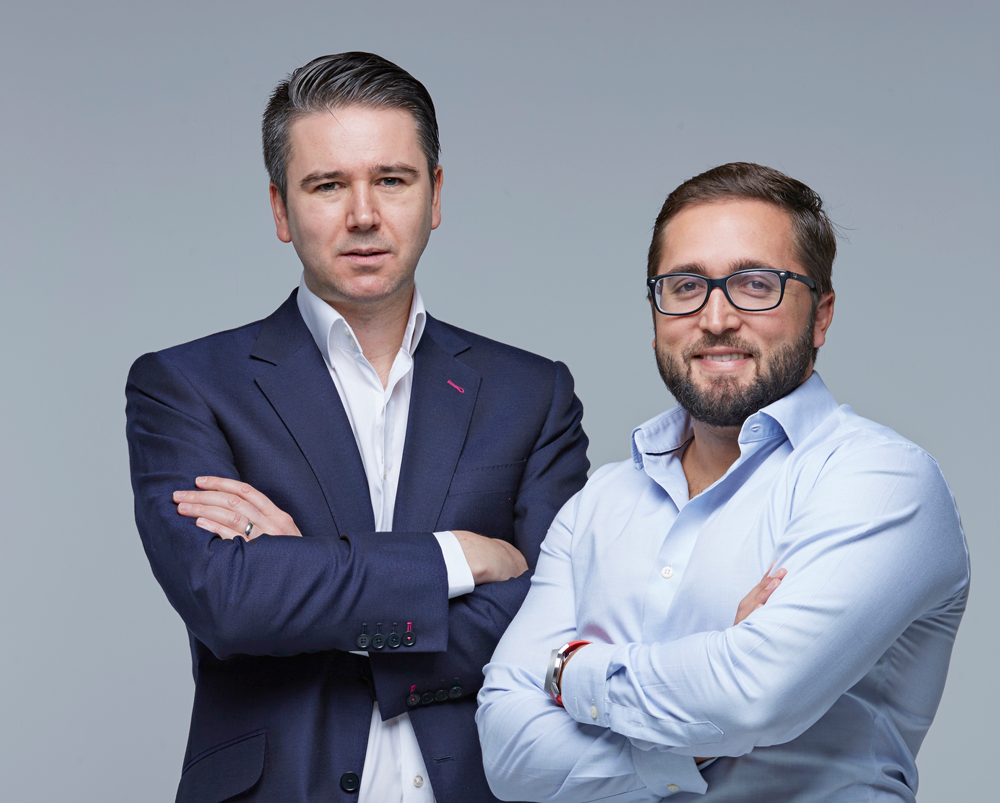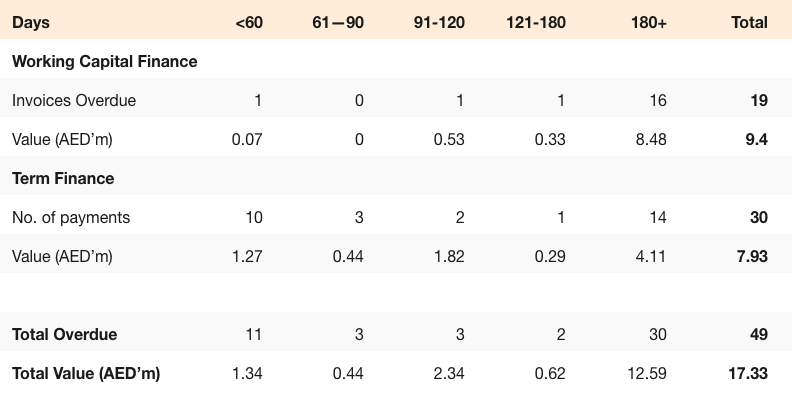SMEs need to grow. Investors should unlock their funds and support them. Both statements are often repeated when talking about the development of the UAE’s economy.
But, in both cases, many have been silent on how to do it.
Not so Craig Moore, the founder and CEO of Beehive – the region’s first online marketplace for peer-to-peer finance.
“We are looking at their [SMEs’] ability to pay, which is a quantitative aspect, and their willingness to pay, which is more of a qualitative aspect,” he says.
“A lot of traditional credit assessment is about looking backwards.
“But actually what you are trying to do is that you are trying to understand why businesses are taking finance, what they are going to do with that finance and how it’s going to take them from here to there.
“So it really is that ability to have a forward-looking element to any assessment, and that’s what we do.”
The peer-to-peer finance (P2P finance) concept was developed in the UK in 2005. It connects savers looking to get higher returns with borrowers, individuals or businesses, looking for lower-cost loans.
In spite of being only a decade old, P2P finance is booming from the US to China, where reportedly 1,575 P2P platforms were operating at the end of 2014. Last year alone $9 billion in loans were funded through this concept worldwide, and the sector is forecast to deliver $1 trillion by 2025.
A year after selling his UK-based data analytics and migration software company, Butterfly Software, to IBM, Moore started looking into the viability of the P2P finance concept in the UAE.
While SMEs contribute around 60 percent to the emirate’s GDP, loans to finance their growth represent only four percent of total outstanding bank loans. Even those companies that succeed often go through complex, time-consuming and costly processes to get access to what many would consider high-cost finance.
“Once SMEs understand the benefits of Beehive to reduce their cost of finance, accelerate the time to finance, and flexibility that goes with taking finance on Beehive, they tend to get really bullish towards using it,” explains Moore.
With Rick Pudner, former Group CEO of Emirates NBD, on board, Moore decided to increase the options that local SMEs have to obtain finance. Authorised and regulated by the DMCC, Beehive was launched last November as the first peer-to-peer financing platform in the UAE.
It facilitates flexible funding solutions for established, credit-worthy SME businesses seeking additional working or growth capital of between AED100,000 to AED500,000 for up to three years.
The businesses typically receive funding in 14 to 18 days at the average rate of around 13 percent making the whole endeavour significantly faster and cheaper when compared to conventional finance routes.
In need of both working and growth capital, Ravi Bhusari, managing director and co-founder of DUPLAYS, a Dubai-based sport and social club, considered three options – a bank loan, equity-based crowdfunding, and peer-to-peer finance through Beehive.
“We immediately discounted wanting to raise money through crowdsourcing for equity because, I think, still for individual investors to invest in a business it’s quite risky,” he says.
“What I felt comfortable with is wanting to raise money through debt because that was an honest promise that I had with these individual investors.
“It is very transparent. At the end of the day, in raising money, whether it’s equity or debt, you want to make friends and not lose friends.”
Founded in 2007 by expats looking to meet others and play sport in Dubai, DUPLAYS has grown to over 70,000 members playing 20-plus recreational sports. They were supported with angel investment from MENA Ventures in 2010 and received the first institutional Series A funding from BECO Capital and Wamda in 2012.
“We also looked at going through a bank, and we already had a bank debt, but the option was to go through Beehive because we were comfortable that we would get a better rate,” Bhusari adds.
“Although we are already eight years old, it’s hard for us to get a decent rate [from a bank] because we don’t have a lot of collateral. We have sports equipment, a good brand, and obviously customers that like different events that we do, but banks still have a hard time figuring out what DUPLAYS is.”
Through Beehive they borrowed AED500,000 with a 24 month term.
“Part of it was [used] for growth,” says Bhusari, “and part of it for our working capital to fund some projects where we have some government contracts but some of their payment terms are either delinquent or it just takes some time for them to wire us the money.”
It is one of 25 businesses, including some Dubai SME 100 ranked companies, which have received in excess of AED10 million from the Beehive investor community so far.
To keep up the momentum, Beehive has developed ancillary features such as a secondary market, which provides liquidity for investors on the platform, an Invoice Financing product, which eases cash flow issues, and a Sharia compliant structure to allow Islamic investors to utilise resources offered on this marketplace finance.
Over 1,000 investors of different nationalities and from different countries have already registered to be on the platform. For the invested amounts, which can be as little as AED100, they receive monthly repayments at target rates ranging from eight percent to 20 percent APR (annual percentage rate).
In one of his many blog posts intended to educate the market about this new concept, Moore explains that “even in the event of Beehive bombing, outstanding investments will be managed and ‘unwound to completion’.”
However, such a scenario is less likely due to the robust investor protections put in place.
“Beehive is for established SMEs. It’s about helping them make a next step in their growth,” explains Moore.
“We are looking for businesses that have revenue growth, [are] profitable, [and have] cash cover and [we check] details about the business and how long the owners have been in the region.”
Bhusari agrees about the importance of building and keeping the reputation in the market, in spite of its transient nature, adding that over a hundred of DUPLAYS’s members listed on Beehive.
“We wanted to energise and include our network for the future success of DUPLAYS,” he says.
“I like the idea of crowdfunding through debt because DUPLAYS is a public-facing company so that these individual debt holders feel a sense that they are helping DUPLAYS grow is important and powerful.”
Moore adds: “Our platform allows them, through its processes and procedures, to formalise what would be an informal relationship.”
The community-oriented feature of the concept coupled with attractive returns has seen the number of individual investor bids on the platform grow by 20 percent between each auction.
However, Moore opines that still more education is needed to make people in the UAE fully understand the concept.
“They are not comfortable with investing in knowledge-heavy but asset-light businesses, and that makes it difficult,” he says. “It really is about this education process because whilst it’s leading edge in the west, it’s bleeding edge here.
“Investing on any peer-to-peer, crowdfunding platform is part of alternative investments so you should never be investing more than three to five percent of your net wealth on these kinds of platforms anyway.
“But what they do is provide an interesting counter-balance to a diversified portfolio.
“There is an opportunity for investors to make an interest in return whilst also supporting local businesses, so you end up creating almost a social contract between the investors and the businesses.”




